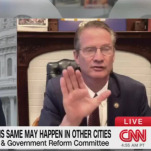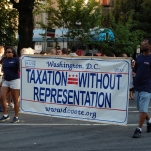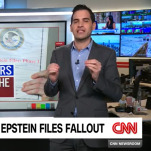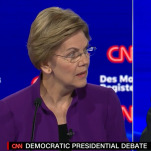Arizona's bitter immigration debate a bad omen for GOP in 2016
It was supposed to be the race that allowed Arizona’s Republican party to move beyond the anti-immigrant politics that made the state a national laughing stock.
Term limits prevented Jan Brewer from running for reelection as governor. And having witnessed voters recall SB 1070 architect Russell Pearce three years ago, the hope was that Republicans would reverse course on immigration, focus on economic growth, and begin the long and difficult path of reaching out to Hispanics.
That plan has evaporated in the Arizona summer. The Republican primary for governor has become a vicious contest between candidates running to the right on immigration.
As the August 26 primary approaches, the candidates have rolled out their plans for border security with little concern for how absurd their positions are. Andrew Thomas, a disbarred former Maricopa County attorney, has bolstered his once-fringe candidacy by promising a “Patton Line” that would cut through the middle of the state in order to secure the border. This didn’t get him laughed off stage; it sparked talk that he could come from behind to win the primary.
State Treasurer Doug Ducey, a top contender who started out focused on economic issues, has touted the endorsement of Sheriff Joe Arpaio as validation of his anti-immigrant credentials. Christine Jones, a former executive at GoDaddy, has used her endorsement from Sheriff Paul Babeu, another immigration hawk, to talk up her own border security plan.
-

-

-

-

-

-

-

-

-

-

-

-

-

-

-

-

-

-

-

-

-

-

-

-

-

-

-

-

-

-

-

-

-

-

-

-

-

-

-

-

-

-

-

-

-

-

-

-

-

-

-

-

-

-

-

-

-

-

-

-

-

-

-

-

-

-

-

-

-

-

-

-

-

-

-

-

-

-

-

-

-

-

-

-

-

-

-

-

-

-

-

-

-

-

-

-

-

-

-

-

-

-

-

-

-

-

-

-










































































































